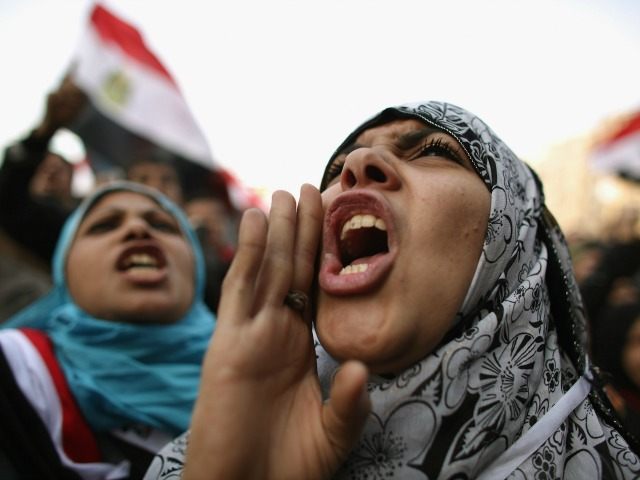On Monday, Egypt marked the fifth anniversary of the January 25, 2011 Arab Spring revolts, which saw the overthrow of long-time autocratic leader Hosni Mubarak.
The Islamist party, the Muslim Brotherhood, would later lose power in Egypt, toppled by current President Abdel Fattah El Sisi in July 2013.
Security services in Egypt are on high alert for potential attacks by militant groups, such as the Islamic State and the Muslim Brotherhood affiliates across the country. The Islamist entities, still reeling from the overthrow of Egypt’s short-lived Muslim Brotherhood President Mohamed Morsi, view Sisi as an apostate Western-backed ruler.
Sisi said the protesters who staged the 2011 uprisings did so on the basis of “noble principles” and strived for a “new Egypt,” according to remarks delivered Sunday. He explained that the Muslim Brotherhood hijacked the Arab Spring for “personal gains and narrow interests.”
But the Brotherhood’s reign was abruptly halted, following the “June 30 revolution” where millions of Egyptians took to the streets and “corrected the course of the 2011 uprising,” Sisi added.
The events of June 30 restored “the free will of Egyptians and continue to realize their legitimate aspirations and deserved ambitions,” he said in a speech to the nation. “Democratic experiences don’t mature overnight, but rather through a continuing and accumulative process,” he added, asking his citizens to showcase “responsible freedom” and not to engage in “destructive chaos.”
“Egypt today is not the Egypt of yesterday, we are building together a modern, developed and civilian state that upholds the values of democracy and freedom,” he concluded.
Egyptian forces have sustained continuing casualties in their ongoing battles against Islamic militants.
On Sunday, militants in Egypt’s Sharqia province launched an attack on a security checkpoint, killing three people, including two police officers. Similarly, on Thursday, suspected Islamic militants in a killed seven police officers and three civilians in Giza.
The Sinai Province, an affiliate of the Islamic State which is based in the Sinai Peninsula, has frequently taken responsibility for these attacks. The group was formerly known as Ansar Bayt al Maqdis. It had close ties to both Al Qaeda and the Muslim Brotherhood before pledging to the Islamic State.
The Arab Spring revolts began in Tunisia but resulted in the overthrow of several seats of power throughout the Middle East and North Africa. The leaders of Tunisia, Egypt, Libya, and Yemen were all forced out of power, and events ranging from full-scale civil war (Syria) to peaceful demonstrations broke out in over a dozen more Islamic countries.

COMMENTS
Please let us know if you're having issues with commenting.